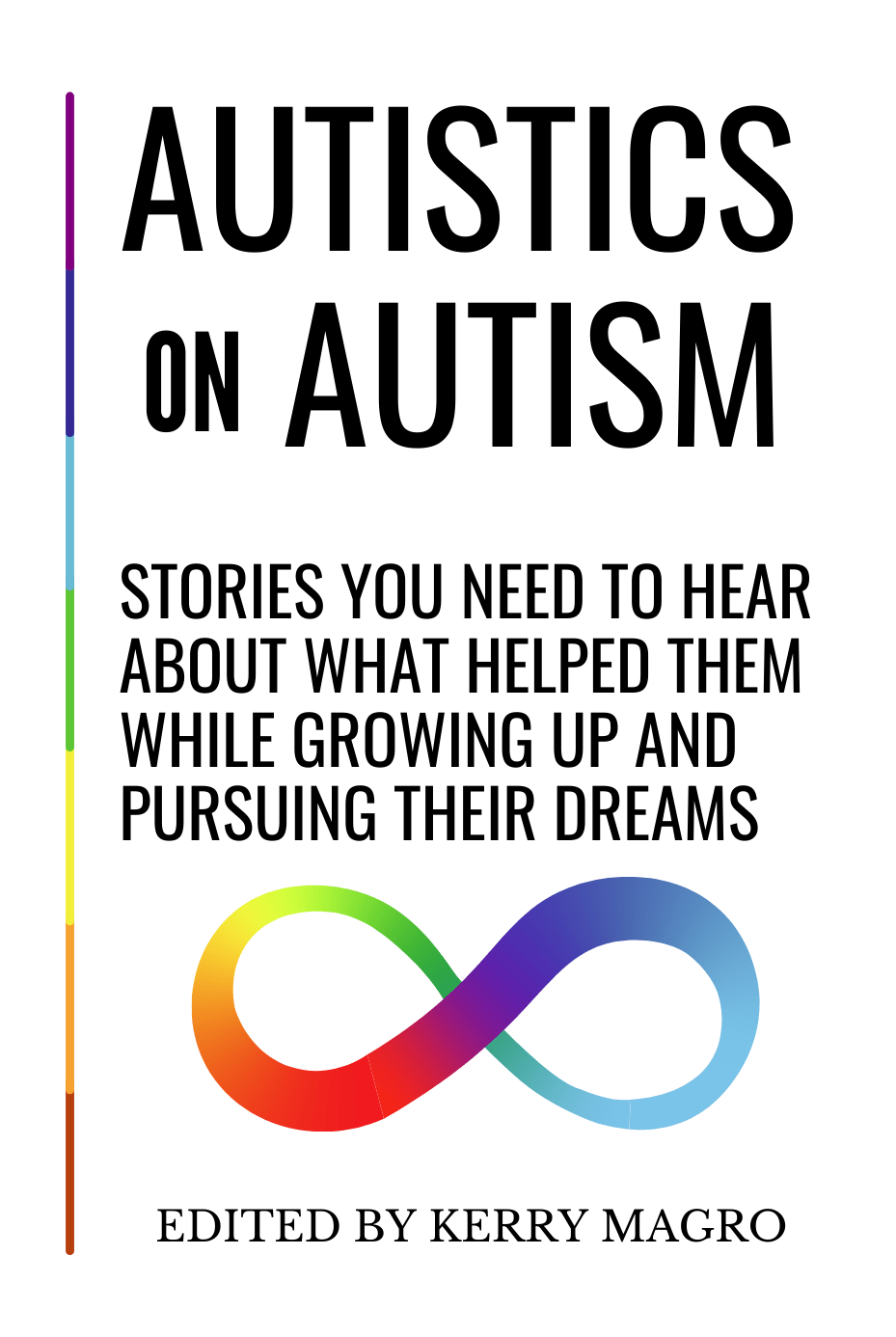This guest post is by David Larson, a young man on the autism spectrum who was diagnosed with PDD-NOS at age 3 and has been accepted into Binghamton University. David is applying for the Spring 2022 Making a Difference Autism Scholarship via the nonprofit KFM Making a Difference started by me, Kerry Magro. I was nonverbal till 2.5 and diagnosed with autism at 4 and you can read more about my organization here. Autistics on Autism: Stories You Need to Hear About What Helped Them While Growing Up and Pursuing Their Dreams, our nonprofit’s new book, will be released on March 29, 2022 on Amazon here for our community to enjoy featuring the stories of 100 autistic adults.
Families play a very important role for a child who is diagnosed with Autism Spectrum Disorder (ASD). Parents must make treatment decisions for the ASD child. At the same time, parents cannot ignore the needs of Neurotypical (NT) siblings. Such is the case for me and my brother Matthew who is 1-year younger than me. I am diagnosed with ASD and my brother is NT.
Families must be inclusive. Families must be mindful that an ASD child and an NT child have the same physical, emotional, social, and intellectual needs. In my family, I was treated no differently than my brother. I received the same rewards and punishments as he did. Because we are 1-year apart, both of us attended pre-school together, took swimming lessons at the YMCA together, went horseback riding together, and traveled together. Because of my family, I have always felt confident in myself and my abilities.
Families must not judge. Every person is different. An ASD child will be different from an NT sibling. However, this is perfectly acceptable. I have always been different from my brother, but that is just fine. In 2005, I was Age 5 and my brother was Age 4. I was mostly non-verbal. I knew a few words and phrases but had great difficulty forming sentences. I was receiving speech therapy twice per week. My brother, on the other hand, had no difficulties speaking. He could read Dr. Seuss’s books and be very good at arguing for what he wanted. My brother and I are different, but both of us are accepted for who we are.
Families must understand ASD. Understanding ASD is critical for helping an ASD child develop. My mother spoke with specialists, therapists, doctors, and other parents to learn about ASD and understand it. Over time, she discovered that ASD covered a range of conditions that can be mild, extreme, or something in between. Behaviors that I exhibited included repetitive actions, resistance to change, difficulty functioning in a non-structured environment, developmental delays, and language regression.
By understanding my ASD, my mother became a strong advocate for my development. She attended school Individualized Education Plan (IEP) meetings and took me to see specialists and therapists. I owe a lot to my mother because she took the time to understand me and my needs.
Families must maintain confidentiality. People have a right to privacy. This is especially true when it comes to protected health information. A diagnosis of ASD must be treated as private. A breach of confidentiality can be hurtful to an ASD child. I have always been athletic and enjoyed participating in sports like soccer, tennis, and basketball.
When I was in elementary school, I wanted to play competitive basketball with my classmates. I joined the basketball team but found myself sitting on the bench most of the time. Somehow the coach learned that I was diagnosed with ASD. He knew that I lacked the verbal communication skills to be an effective member of the team. And when he did send me to the court to play, the other players on my team would not pass the ball to me. I felt left out and shut down emotionally.
It was not until high school that I was invited to participate in Unified Basketball. Unlike competitive basketball, Unified Basketball joined people with and without disabilities on the same team. I remain friends with many of my Unified Basketball team members to this day.
Families must advocate for the rights of family members with ASD. Being an advocate means being supportive. A person with ASD faces many challenges in life. Being an advocate simplifies everyday life. In addition to my mother, my brother has become my advocate. He has been very helpful in my transition to Binghamton University. He introduced me to the campus. He helped me to understand Degree Works and select my Fall 2021 classes. When our daily schedules are aligned, he drives me to and from the campus and we eat lunch together. It is because of advocates like my mother and my brother, that I believe I can be successful at Binghamton University and graduate with a 4-year degree.
Follow my journey on Facebook, my Facebook Fan Page, Tiktok, Youtube & Instagram,
My name is Kerry Magro, a professional speaker and best-selling author who is also on the autism spectrum that started the nonprofit KFM Making a Difference in 2011 to help students with autism receive scholarship aid to pursue post-secondary education. Help support me so I can continue to help students with autism go to college by making a tax-deductible donation to our nonprofit here.
Autistics on Autism: Stories You Need to Hear About What Helped Them While Growing Up and Pursuing Their Dreams, will be released on March 29, 2022 on Amazon here for our community to enjoy featuring the stories of 100 autistic adults. 100% of the proceeds from this book will go back to our nonprofit to support initiatives like our autism scholarship program. In addition, this autistic adult’s essay you just read will be featured in a future volume of this book as we plan on making this into a series of books on autistic adults.















